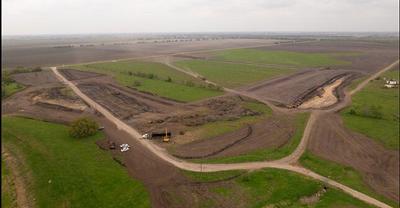- Sections :
- Crime & Public Safety
- Restaurants & Food
- Sports
- More
Texas Health and Human Services Expands Treatment for Early-Onset Psychosis to Rural Texas

AUSTIN, TX -- Texas Health and Human Services today announced the expansion of mental health services to help rural Texans experiencing early-onset psychosis.
With $4 million from the Substance Abuse and Mental Health Services Administration’s Mental Health Block Grant, HHSC’s Coordinated Specialty Care program is adding 13 new sites this summer to increase access to care throughout the state, particularly in rural areas.
Through a team-based, recovery-focused approach to care, HHSC’s program serves adolescents and young adults from ages 15 to 30 who have had a psychotic disorder diagnosed within the last 24 months. Key symptoms of psychosis include hallucinations, delusions and confused thinking causing substantial life disruption. The program uses evidence-based interventions that help improve quality of life by reducing symptoms and the need for crisis services and inpatient psychiatric hospitalization.
“It’s critical we reach people early in their diagnosis to create the best opportunity for recovery,” said Sonja Gaines, HHSC deputy executive commissioner for Intellectual and Developmental Disability and Behavioral Health Services. “Connecting people with the right treatment and support can be life changing and dramatically alter the trajectory of a person’s future.”
'Your zip code should not determine your access to care,” said Rep. Garnet Coleman. “I am glad to continue to support HHSC's efforts to ensure that all Texans have access to care when they need it.”
According to the National Institutes of Health, about 100,000 adolescents and young adults in the United States experience a first episode of psychosis each year.
“Early intervention has the greatest impact when people get the right treatment at the right time,” said Greg Hansch, interim executive director of National Alliance on Mental Illness Texas. “Expanding the transformative Coordinated Specialty Care program will provide more young Texans experiencing psychosis with hope and the opportunity for recovery. NAMI Texas applauds the state for this major step to help people get the care they need.”
Coordinated specialty care is designed to meet the needs of people with an early onset of psychosis. Research shows if a person gets the right help within the first year, there is a good chance they will learn to manage the illness and live a more normal life. This intensive treatment approach includes medication and primary care, evidence-based therapy, family education and support, case management, employment and education supports, and outreach.
Since 2014, HHSC’s Coordinated Specialty Care program has helped individuals with a diagnosis of early-onset psychosis graduate from high school and college, achieve stable housing, maintain employment, and achieve their goals of successful independent living.
HHSC’s program is administered by local mental health and behavioral health authorities. In fiscal year 2018, 520 people received coordinated specialty care in the 10 established sites. With the addition of 13 new sites, health officials estimate up to 700 people could be served monthly in the program.
The new sites will be served by:
Andrews Center Behavioral Healthcare, Tyler
Border Region Behavioral Health Center, Laredo
Central Counties Services, Temple
Coastal Plains Center, Portland
Community Healthcore, Longview
Denton County MHMR, Denton
LifePath Systems, Plano
Pecan Valley Centers, Granbury
Spindletop Center, Beaumont
Texana Center, Rosenberg
Texoma Community Center, Sherman
Tri County Behavioral Health, Conroe
West Texas Centers, Big Spring
More information is available at https://hhs.texas.gov/doing-business-hhs/provider-portals/behavioral-health-services-providers/coordinated-specialty-care-first-episode-psychosis. Texas residents can dial 2-1-1 to learn about programs and services.

















